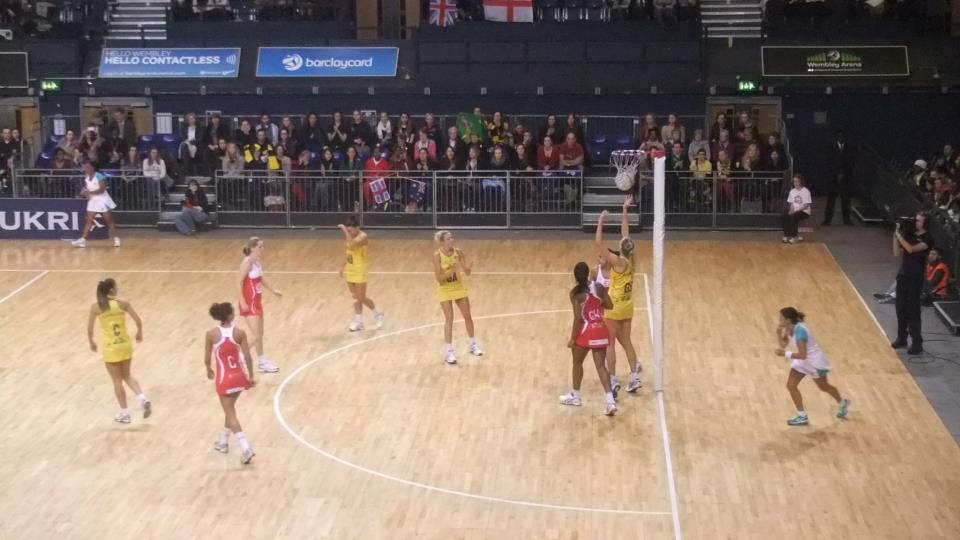By Jess Pinchbeck
So far this summer we’ve seen women’s sport grow from strength to strength with greater coverage than ever in the global media, and it’s not over yet! Building on the excitement and drama of the Women’s Football World Cup another significant sporting event is poised to commence, the Vitality Netball World Cup, hosted here in England! England’s tense Commonwealth Gold medal victory over Australia on their home turf in April 2018 means the world number one’s are out for revenge, although it’s certainly not a two-team tournament with Jamaica, New Zealand and South Africa all major contenders.
The World Cup, hosted in Liverpool, begins on Friday 12th July, comprising 60 matches over 10 days, with the final being played on 21st July. There are sixteen teams selected through a mixture of International Netball Federation (INF) world rankings and qualifying tournaments. England automatically qualified as the home nation, and are currently ranked as 3rd in the world. The five top ranked teams in the world also gained automatic qualification; Australia (1st), Jamaica (2nd), New Zealand (4th), South Africa (5th), and Malawi (although they have now dropped to 9th in the rankings as of June 2019). The remaining places were finalised via regional qualifier events throughout 2018 with the top two teams from each INF region securing places; Africa (Uganda and Zimbabwe), Americas (Trinidad and Tobago and Barbados), Asia (Sri Lanka and Singapore), Europe (Northern Ireland and Scotland) and Oceania (Fiji and Samoa). Unfortunately, this resulted in Wales, currently 12th in the World rankings, failing to qualify.
The timing of this World Cup on home soil couldn’t have been better for England Netball, with the sport reaching new heights in England, both at participation and performance level. In 2016 funding ensured 14 players entered a full-time athlete agreement, rising to 21 players being awarded full-time contracts in 2018-19. Sky Sports coverage has continued to grow since 2006, broadcasting the Vitality Netball Super league every season, with every World Cup game live across Sky Sports platforms. The BBC, on which 1.5 million people watched the England Roses Commonwealth victory against Australia, continues to support netball by also broadcasting the World Cup games across its TV and digital channels. Elite success and increased media coverage has also impacted the sport at grassroots level with participation figures rising year on year, due to the huge success of the Back to Netball, Walking Netball and Bee Netball campaigns, encouraging participation in women of all ages and abilities, with over a million women playing netball each week.
Even at elite level there is a mix of age and experience amongst the Roses. England’s most experienced player is centre/wing defence Jade Clarke, aged 35, boasting 161 caps, with Geva Mentor, one of the most prolific goal keepers in the world, aged 34, also adding a wealth of international experience with 138 caps. Six other members of England’s historic gold-medal winning Commonwealth Games team also make the world cup squad; Eboni Usoro-Brown, Joanne Harten, Natalie Haythornthwaite, Chelsea Pitman and of course Helen Housby, who scored the winning goal. Rachel Dunn missed out on the Commonwealth Games but at 36 years old and with 86 caps, and two previous world cups under her belt, adds experience to the shooting circle. Tracy Neville, the England manager, has made some bold decisions leaving the Corbin sisters out of the final squad, as well as previous captain Ama Agbeze. Instead, youth has been injected into defence with Fran Williams, aged 21 and Layla Guscoth , age 27, both playing in their first major tournament along with centre court player Natalie Panagarry, aged 28.
The exclusion of such talented players illustrates the depth of the England squad and undoubtedly funding for full-time contracts has contributed to this and is to be celebrated. However, for those players with established careers the disruption of committing to netball full-time can be difficult to navigate and two of the Roses squad opted out of full-time netball to maintain their careers. 31-year-old Eboni Usoro-Brown works as a trainee solicitor at Mogers Drewett around her netball commitments for Team Bath and England. Likewise, Rachel Dunn, age 36, continues to balance both domestic and international netball as well as a career as a genetic scientist:
The stories of Usuro-Brown and Dunn illustrate the importance of receiving full-time contracts early on in players careers and the difficulties that can arise if offered later, when alternative careers with perhaps greater longevity have been worked for and established. It is clear to see the impact of full-time funding on the depth and strength of the England squad and so with England Netball admitting that funding will be difficult past 2019 there is so much to play for at this World Cup to keep the netball dream alive for England’s future Roses.

